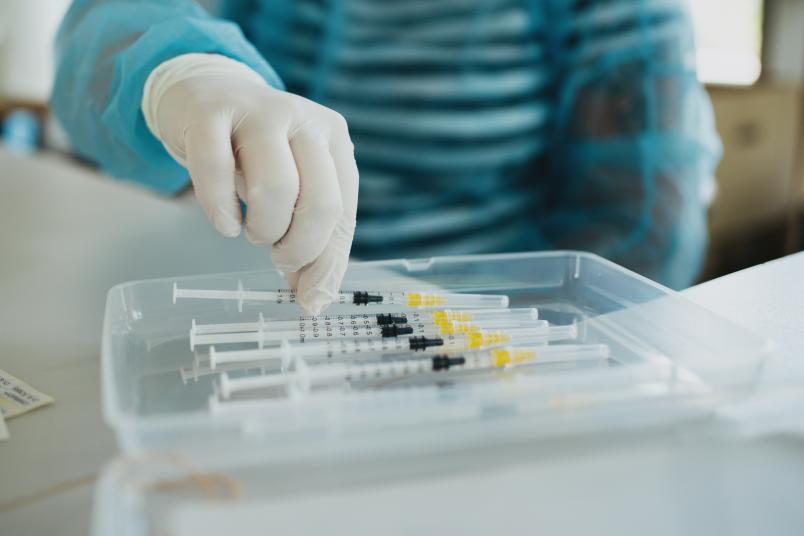
Coronavirus
Which factors determine whether a person decides to get vaccinated?
The answer varies from country to country.
Getting vaccinated against Covid-19 can play a crucial role in ending the pandemic. But too many people are rejecting the vaccination. In a large online survey in May 2021, a team from the psychology department at Ruhr-Universität Bochum (RUB) analysed which factors play a role when people decide for or against vaccination. More than 9,000 people in nine countries on three continents took part. Conclusion: It varies from country to country which groups should be specifically addressed with educational and advocacy campaigns. Almost everywhere, the groups in question are people who doubt the effectiveness of the measures adopted by policymakers, as well as people who don’t get their information from television. The researchers published their report in the journal Plos One on 1 December 2021.
Approximately 1,000 participants per country
The online survey in May 2021 ran for one week. It involved around 1,000 people aged 18+ from China, France, Germany, Poland, Russia, Spain, Sweden, the UK, and the USA. The survey collected information on gender, age, marital status, social status, whether the participants live in an urban or rural area, whether they belong to a Covid-19 risk group, their mental health, their media use, their perceptions of government communication and their attitudes towards the pandemic response.
Almost 30 percentage points difference between Great Britain and Russia
Overall, around 80 percent of people surveyed said they had already been vaccinated or wanted to get vaccinated. However, the percentage varied greatly from country to country. While in the UK 93.9 percent were willing to be vaccinated, in Russia it was only 62 percent. “This is a remarkable difference,” says PD Dr. Julia Brailovskaia from the Mental Health Research and Treatment Center of the RUB, who conducted the study together with Professor Jürgen Margraf and Professor Silvia Schneider.
The differences between the nine countries can be explained by a combination of internal and external factors, according to the researchers. “We can attribute about 30 to 40 per cent of the differences to the factors we studied in our survey,” the researchers say. In Germany, vaccine sceptics tend to be male, whereas in China, women are more likely to reject vaccination. In Sweden and some other countries, gender does not play a role.
In the USA and Germany, people are more likely to oppose vaccination either if they suffer from severe symptoms of stress or if they do not experience any particular mental health problems. “People with high levels of mental health may perceive the threat of the pandemic less strongly than others and therefore do not see the need to protect themselves through vaccination”, describe the researchers.“ In contrast, people who experience a high level of stress tend to react inappropriately, which can make the situation worse.” Both factors were not significant in other countries.
Information sources play a role
In almost all countries, the research team found a link between not using television as a source of information and refusing vaccination. In Poland, Sweden and the USA, the use of social media as a source of information contributed to people being more likely to reject vaccination. People who do not perceive government policies to be effective are also more likely to reject vaccination. China is an exception in this regard.
“To improve vaccination coverage and thus achieve global immunity against Covid-19, each government must consider the specific pattern for its population. This is the most important way to successfully fight the pandemic,” says Julia Brailovskaia.
The study is part of the “Bochum Optimism and Mental Health (BOOM)” project, which investigates risk and protective factors of mental health.